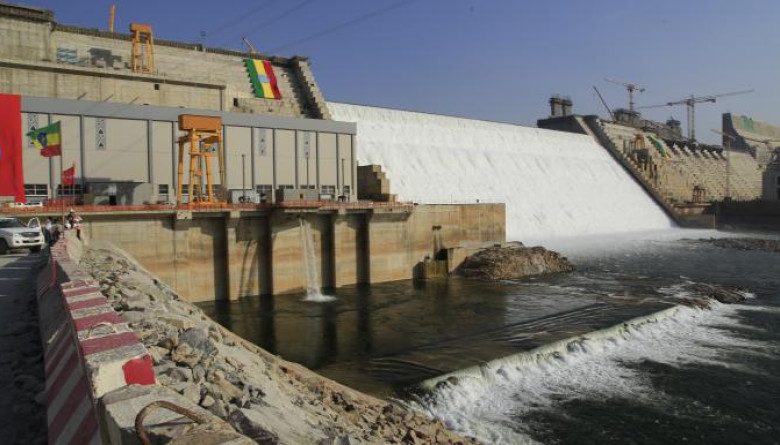Ennahda Dam: Shoukry Confirms to United Nations Official Egypt’s Adherence to Its Position

Egyptian Foreign Minister Sameh Shoukry reiterated, on Thursday, his country’s firm position on the need to reach a binding agreement on the rules for filling and operating the Ennahda dam
This came during a meeting today with Hanna Tita, Special Envoy of the Secretary-General for the Horn of Africa, on the sidelines of the 42nd session of the Executive Council of the African Union.
In a statement to HE Ambassador Ahmed Abu Zeid, official spokesperson and director of the Department of Public Diplomacy at the Ministry of Foreign Affairs, he said that the meeting touched on a number of issues related to the situation of peace and security in the Horn of Africa, particularly the situation in Somalia.
During the meeting, Minister Shoukry stressed the momentum of the Egyptian-Somali relations, noting the recent visit of the Somali President to Cairo last July, which witnessed joint understandings that are being built upon within the framework of Egypt’s firm and historical role in supporting Somalia.
They also discussed the African Union Transition Mission in Somalia (AMISOM), and agreed on the need for international partners to join forces to support stabilization efforts in Somalia by activating the role of the African Union Mission in its new format.
He added that the meeting also dealt with developments in Sudan, where the Foreign Minister stressed the support to achieve consensus among the Sudanese political forces in order to ensure the success of the transitional period and to achieve the aspirations of the brotherly Sudanese people to restore stability and overcome the challenges of the current stage.
The Ennahda dam, which is expected to be Africa’s largest water-generating project, has been at the center of a regional dispute since Ethiopia launched its dam construction project in 2011. The downstream countries of Egypt and Sudan fear for the dam’s water security while Addis Ababa stresses its importance to power generation and development in the country.
On August 11th, Addis Ababa announced the operation of the second turbine at the Nahda Dam to generate electricity. “The third filling process does not lead to water shortages in downstream countries,” it said.
Regarding his meetings with Sudanese political parties, Abiy Ahmed said that he would not present new proposals, expressing his confidence in the ability of the Sudanese to overcome their political issues. For his part, he briefed the Ethiopian government on the overall situation.
At the end of January, Sudan and Ethiopia expressed their agreement on all issues of the Ennahda Dam and agreed to enhance mutual cooperation and coordination between the two sides.
During an official visit to Sudan by Ethiopian Prime Minister Abiy Ahmed, Chairman of the Sudanese Sovereign Council Lieutenant General Abdul Fattah Al-Burhan stressed the need to strengthen cooperation and coordination between Sudan and Ethiopia on bilateral regional and international issues.











